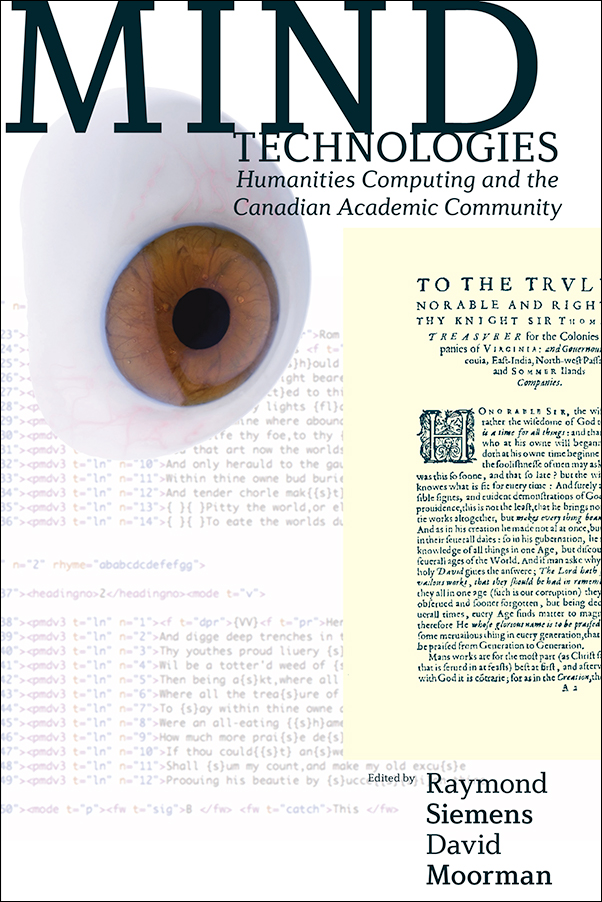
Mind Technologies: Humanities Computing and the Canadian Academic Community
Edited by Raymond Siemens and, David Moorman
OUT OF PRINT
360 pages, 45 illustrations
6 x 9 inches
Hardback: 1552381722
Paperback: 978-1-55238-172-4
Library PDF: 978-1-55238-403-9
October 2006
This collection broadly documents the internationally significant work of the Canadian academic community in humanities computing.
The application of computing technology to the arts and humanities has been a topic of increased focus in the post-secondary environment. With growing understanding of how these applications can serve the ongoing mission of humanities research, teaching, and training, technology is playing a larger role than ever before in these disciplines.
Arising in part from a joint venture between the Consortium for Computers in the Humanities / Consortium pour ordinateurs en sciences humaines (COCH/COSH; now SDH/SEMI, the Society for Digital Humanities / Société pour l’étude des médias interactifs) and the Social Sciences and Humanities Research Council (SSHRC), Mind Technologies is the first volume to broadly document the internationally significant work of the Canadian academic community in the area of humanities computing.
About the Editors
Raymond Siemens is Canada Research Chair in Humanities Computing and Distinguished Professor in the Faculty of Humanities at the University of Victoria. He is the founder of the electronic scholarly journal Early Modern Literary Studies.
David Moorman is a Senior Policy Advisor with the Social Sciences and Humanities Research Council of Canada. His responsibilities include developing policies and support programs for research infrastructure. Dr. Moorman holds a PhD in History from the University of Ottawa.
With Contributions By: David Moorman, David Strangway, Ray Siemens, Christian Vandenorpe, Ian Lancashire, Patricia Clements, Michael Best, Susan Brown, Renée Elio, Isobel Grundy, Murray McGillivray, Lisa Charlong, Alan Burk, Stephen R. Reimer, James Chartrand, Nicholas Griffin, Elaine G. Toms, France Martineau, Robert Good, Paul A. Fortier, Karen McCloskey, Russon Wooldridge, John Bonnett, Andrew Mactavish, Geoffrey Rockwell, Sean W. Gouglas, Stéfan Sinclair, Aimée Morrison, Alan Burk, Terry Butler, Scott Gerrity, Peter Liddell, and R.G. Siemens.
Priase for Mind Technologies
The best contributions to this book reach beyond the impressive range of Canadian accomplishments to the core problematic of the field: what the mechanical has to do with the humanistic
—Willard Mccarty, University of Toronto Quarterly